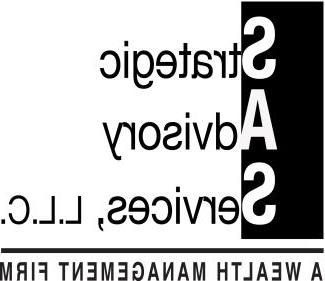
如何克服3种无意识的偏见,让你的财务目标遥不可及
In a perfect world, every money decision we make would be totally rational.
We’d consider all of the facts. Then, we’d balance them with the risks to make the most logical choice available.1
That sounds simple.
Yet it doesn’t happen as much as it should in the real world.1, 2
这是因为我们中的许多人在做财务决策时并不依赖逻辑和事实——我们甚至可能没有意识到这一点.2
Instead, we could be letting some tricky biases get in our way.2
当这种情况发生时,我们倾向于依赖冲动、情感和有缺陷的推理——而不是事实.
这使得即使是房间里最聪明的人也很难做出明智的财务选择.2
So, what does it really take to make better decisions with our money?
It takes a little knowledge of the mental biases that can trip us up with finance.2
3 Hidden Biases Behind Poor Investing Moves
我们每个人在生活中的某个时刻都会经历一种或多种无意识的偏见. Learning how to quickly recognize them, can help us stay open to new information, guiding us to make well-informed decisions and find better financial opportunities.
1. The Halo Effect
With the Halo Effect, we under-or-over value some options, based on arbitrary factors that we find attractive. Simply put, 我们看到某些选项的“光环”只是因为这些选项的呈现方式,而不是基于任何事实或实际的尽职调查.1
Investing Example: You have the opportunity to invest in Company A or Company B. A公司的老板是一名常青藤联盟(Ivy League)毕业生,他在投资推介会上穿着西装. B公司是由一个非常青藤联盟的人经营的,你见到他的时候他不会穿西装. So, you invest in Company A because it seems like a better investment, 基于它的“外观”而不是基于任何关于潜在风险或回报的事实.1
Sign: “They look more professional, so they’re probably more successful.”
The halo effect can be really strong around certain brands. If you’re wooed into an investment because of brand popularity, 把这当作光环效应的一个危险信号,确保你在做出投资决定之前没有跳过尽职调查.1
2. Fast Thinking
Under the influence of Fast Thinking, we’re primed to act NOW, 没有任何检查点,作为快速获取大量信息的反应. With that, our thinking speeds up and tends to cut corners, 与财富的想法赛跑,让我们觉得我们必须做出选择,有时是一个重大的选择,越快越好.1
Investing Example你在一个压力很大的研讨会上,一个语速很快的推销员正在强调一个“黄金”机会, and you have to act quickly to get in on it. 当你在互联网上寻找投资选择时,快速思维也会起作用, flooded with info and few filters.1
Sign: “剩下的时间不多了,所以我最好现在就投入到这项“伟大”的投资中!”
That need to rush is some classic Fast Thinking at play, and it’s not usually behind the best financial choices. Instead, it tends to mislead folks into making big moves quickly, before they’ve considered all or any downsides.1
3. Future v. Present Self
When we’re experiencing the Future v. 现在的自我偏见,我们认为自己是两个不同的人,我们更看重现在的自己. In other words, we tend to view our “future self” as someone else, 我们没有意识到,我们的“另一个”自我并不需要我们的“现在的自我”所需要的东西.1
So, 我们倾向于做出对现在的自己比对未来的自己更有利的财务决定, 当未来最终成为现实时,我们并没有像我们希望的那样做好准备.1
Investing Example: You allot 2% of each paycheck, instead of 5%, to your retirement savings because you want more spending money day to day.1
Sign: “Who knows if I’ll live to be 90 or 95?! I’m here now, I’m going to treat myself now!” Trading off the future to “live better” now is a telltale sign of the Future v. Present Self bias. It makes us want the sure thing now, 这可能意味着我们最终会从未来的自己那里偷东西,只是因为我们不“了解”他们,或者花时间真正考虑未来的自己.1
How to Stop Making Bias-Driven Choices in Finance & Experience Better Results
These aren’t the only hidden biases that we can encounter in our financial lives. Unfortunately, there are many more, and they can subtly taint our perspective and reasoning abilities.2
当我们面临全新的决定或未来看起来特别可怕时,这种情况更有可能发生. 当我们不太了解我们必须做出的选择时,我们也容易受到偏见的影响.2
好消息是,我们不必独自应对这一切,学习更多,明天做出更好的理财选择永远不会太晚. 无论你是面临高风险的财务决策,还是你只是想做出更好的选择,以保持在宏观目标的轨道上, touching base with a financial professional can help, especially when you’re routinely checking in. 最敏锐的投资者通常就是这样调整他们的前景和选择,以获得更好的结果.
Sources:
本内容的来源被认为是提供准确的信息. 所提供的信息并非书面或意图作为税务或法律建议,也不能作为避免任何联邦税务处罚的依据. Individuals are encouraged to seek advice from their own tax or legal counsel. 参与遗产规划过程的个人应该与遗产规划团队合作, including their own personal legal or tax counsel. 所提供的信息或所表达的任何意见均不构成我们对特定投资或购买或出售任何证券的陈述. 资产配置和多样化并不能保证在市场下滑时盈利或防止损失. 本材料由Advisor网站开发和制作,旨在提供您可能感兴趣的主题信息. Copyright 2024 Advisor Websites.

